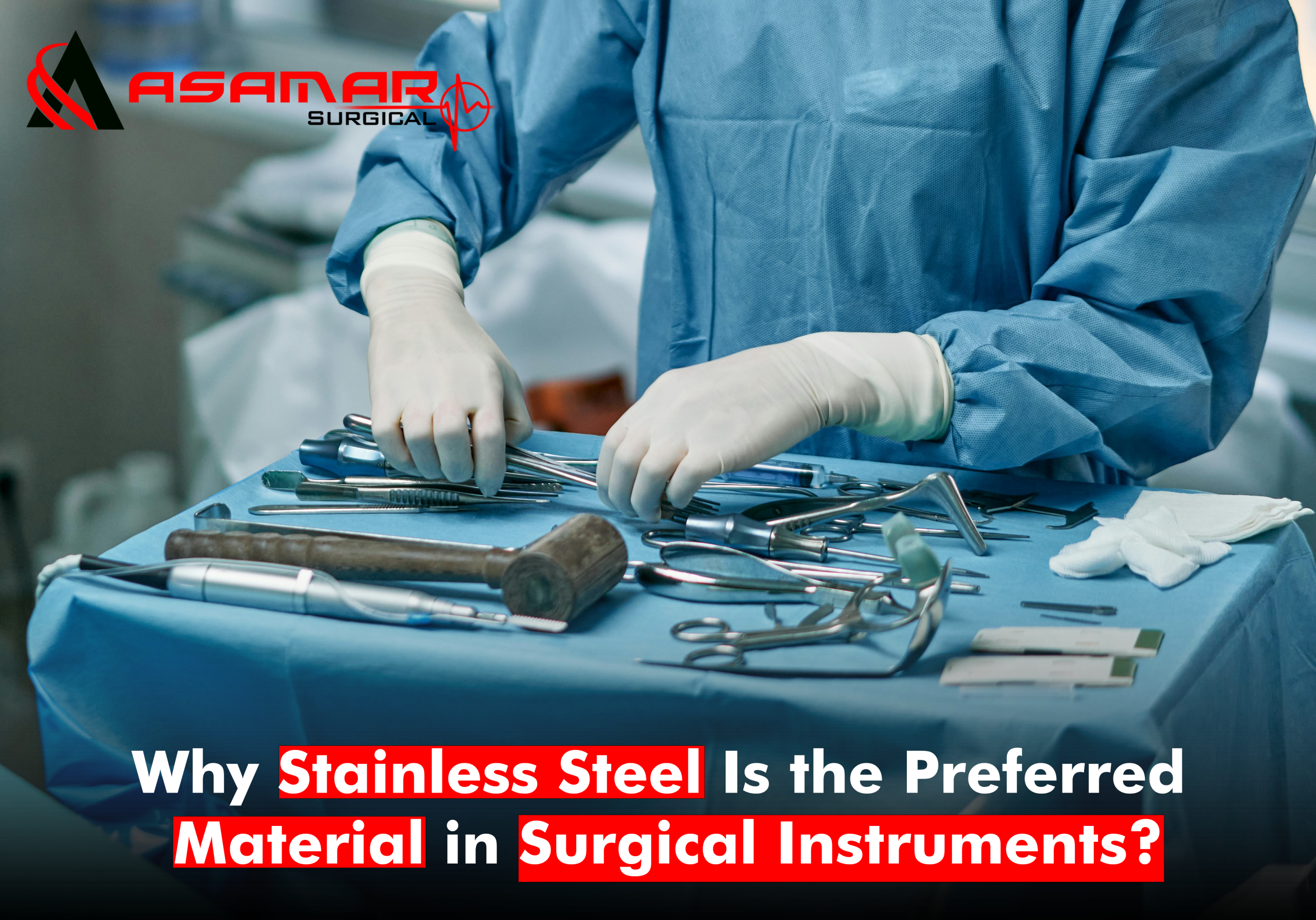Introduction: Precision, Safety & Durability Begin with the Right Material
When it comes to surgical instruments, choosing the right material is not just a matter of quality, it’s a matter of life-saving reliability. At Asamar Surgical Retractor Specialist, we have over four decades of experience crafting surgical tools that meet the toughest demands of operating rooms around the world. The foundation of this reliability? Surgical-grade stainless steel.
In this article, we explore why stainless steel remains the gold standard in the surgical instrument industry, and why we exclusively use it to manufacture our precision surgical retractors.
1. Superior Mechanical Strength & Longevity
Surgical tools go through immense physical stress—retracting tissues, applying force, and repeated handling.
Why Stainless Steel Stands Out:
- High tensile strength: Doesn’t deform under pressure, even during long or complex surgeries.
- Hard-wearing: Withstands wear and tear much longer than other metals.
- Resistant to fatigue: Ideal for reusable instruments like rib spreaders and abdominal retractors.
✅ Pro Tip: Our stainless steel Tuffier Retractors are renowned for their mechanical endurance.
2. Corrosion Resistance in Sterile Environments
Hospitals use strong chemicals, autoclaves, and steam sterilization, materials must endure these without breaking down.
- Stainless steel resists rusting even after hundreds of sterilization cycles.
- Chromium in stainless steel forms a protective oxide layer, preventing surface corrosion.
- Long-lasting shine and finish remain intact.
💡 Did you know? Corroded instruments are not just unusable, they’re dangerous. That’s why our Cooley Retractors are built to resist pitting and surface damage.
3. Non-Porous & Bacteria-Resistant Surface
Patient safety depends on absolute hygiene. Stainless steel helps achieve that:
- Non-porous surface: Prevents microbial growth.
- Easily sterilized: Compatible with steam, chemical, and radiation sterilization.
- Low reactivity: Doesn’t absorb or retain any chemical agents.
Our instruments are finished with high-grade polishing, minimizing surface irregularities where bacteria might hide.
4. Biocompatibility: Safe for Internal Use
Stainless steel doesn’t just stay clean, it’s also safe inside the human body.
- No toxic reactions
- No inflammation or allergic response
- FDA-approved material class for surgical instruments
Instruments like our Haight Retractor and Franz Retractor are used in sensitive surgeries because of their biocompatibility and precision finish.
5. Cost-Effective in the Long Run
While high-grade stainless steel instruments may have a higher upfront cost, their lifespan far outweighs cheaper alternatives:
- Reusable for years
- Lower maintenance costs
- Fewer replacements required
Hospitals using our O’Sullivan-O’Connor Retractors report excellent ROI over years of use.
6. Precision Engineering: The Art of Instrument Design
Stainless steel allows extremely precise shaping, which is crucial in surgical retractors that must:
- Fit various body cavities
- Be adjustable during procedures
- Offer firm grip without slippage
Our expert craftsmen in Sialkot engineer tools to exact specifications, ensuring ergonomic design and surgical precision. Learn more about our legacy on the About Us page.
7. Environmentally Responsible Choice
Unlike disposable plastic tools, stainless steel instruments are:
- Reusable (reducing medical waste)
- Recyclable
- Part of sustainable surgical practices
Choosing stainless steel is a step toward green healthcare, something Asamar fully supports.
Conclusion: A Material That Matches the Mission
In the demanding world of surgery, there is no room for compromise. Stainless steel remains unmatched for its strength, safety, and precision. At Asamar Surgical, every retractor we produce carries that legacy, built from steel, forged in trust.
🔗 Explore our full product range of retractors and specialty surgical instruments today.

